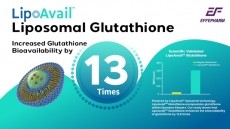New data finds antioxidant combo decreases smokers' cancer risk
appear to have a lower risk of lung cancer, according to a recent
study.
The results counter the findings of a trial carried out in the 90s, the Finnish ATBC study, which found an increased risk of the disease for smokers with high beta-carotene intake.
In the new study, researchers from Yale University and other US institutes together with colleagues from the National Public Health Institute in Helsinki, Finland analysed the same data but looked at the total intake of antioxidants, including selenium, vitamin E, vitamin C as well as carotenoids and flavonoids, rather than one single antioxidant.
At baseline (1985-1988), 27,111 Finnish male smokers aged 50-69 years completed a dietary questionnaire that assessed usual frequency of consumption and portion sizes for the previous 12 months. A total of 1,787 incident cases of lung cancer were identified during a follow-up period of up to 14.4 years (1985-1999).
Writing in the 1 July issue of the American Journal of Epidemiology (160:68-76), the researchers report that smokers in the top quintile of dietary antioxidant intake had a 16 per cent lower risk of lung cancer compared to those with the lowest intake.
Smokers who ate large amounts of meat had a 25 per cent decrease, despite red meat having a high oxidative effect.
The Vitality Council, a Danish organisation set up by the Danish Society for Orthomolecular Medicine and producers and distributors of vitamins and minerals to inform consumers and health professionals about new research, said the results are of "great importance, because they are sourced from the same ATBC study, which has been one of the most outspoken arguments to warn against antioxidants".
It noted that two other larger studies have found the risk of lung cancer decreased up to as much as 32 per cent and 68 per cent.
The researchers add in a commentary that the original ATBC study results have been due to the fact that the smokers did not get a combination of vitamins but were given beta-carotene alone. They recommend smokers take a variety of antioxidants as a protection against cancer.












